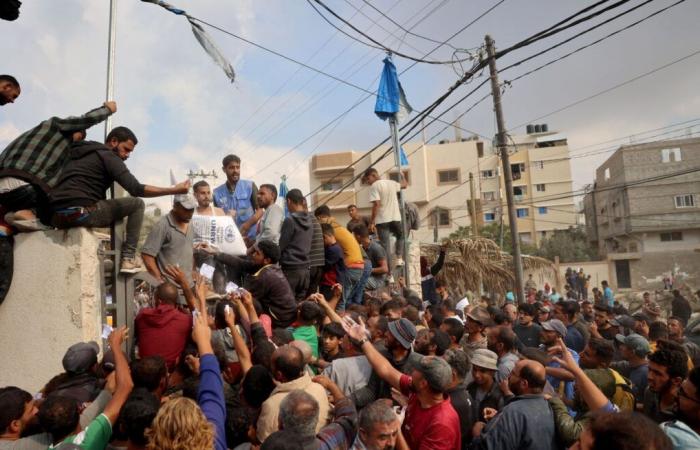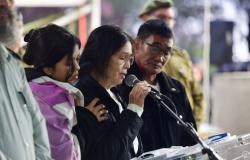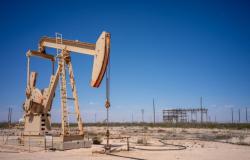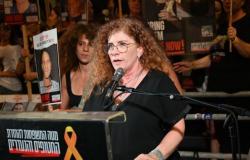Israel officially informed the UN on Monday of the ban on UNRWA, a UN agency considered the “backbone” of aid to refugees in the occupied Palestinian territories, in the midst of war in the Gaza Strip plunged into a humanitarian disaster.
At the same time, the Israeli army carried out new strikes in Gaza and Lebanon, where it is fighting respectively Hamas and Hezbollah, two pro-Iranian Islamist movements that it seeks to put out of harm’s way.
Despite the hard blows inflicted on Hezbollah, this movement continues to fire rockets into northern Israel, which borders southern Lebanon. On Monday, he said he had launched “a large salvo of rockets” on the city of Safed.
The war in Gaza was triggered by a violent attack carried out on October 7, 2023 by Hamas on Israeli soil. The next day and in support of Hamas, Hezbollah opened a front against Israel, which degenerated into open war last September.
On the eve of the presidential election in the United States, Israel’s main ally, and despite international pressure, attempts to put an end to hostilities in Gaza and Lebanon remained in vain.
A week after the Israeli Parliament passed a law banning the activities of the UN relief agency for Palestinian refugees (UNRWA), Israeli diplomacy “notified the UN of the cancellation of the agreement between Israel and UNRWA,” according to a statement.
This agreement dates back to 1967, the year Israel began its occupation of the Palestinian territories of the West Bank and Gaza, as well as East Jerusalem.
” Collapse “
Israel, long critical of UNRWA, once again accused “employees of the organization of having participated in the massacre of October 7,” according to the Foreign Affairs press release.
“The UN has received countless evidence of Hamas operatives being employed by UNRWA and the use of their facilities for terrorist purposes,” he added.
UNRWA provides essential assistance to refugees in the Palestinian Territories and several Arab countries.
“If this law is implemented, it risks causing the collapse of the international humanitarian operation in Gaza, of which UNRWA is the backbone,” warned Jonathan Fowler, a spokesperson for the agency.
But the head of diplomacy Israel Katz rejects this argument. “The vast majority of humanitarian aid in Gaza is delivered by other organizations, and only 13% of this aid comes from UNRWA. »
“It’s UNRWA or nothing”
“For us, it’s UNRWA or nothing,” says Chafic Ahmad Jad in the Nour Chams camp in the northern West Bank, where residents worry about their future after the agency’s office was seriously damaged during an Israeli raid.
Israel vowed to destroy Hamas after its attack on October 7, 2023, which resulted in the deaths of 1,206 people, mostly civilians, according to an AFP count based on official Israeli data, including hostages killed or died in captivity .
Of 251 people kidnapped, 97 remain hostages in Gaza, 34 of whom were declared dead by the army.
In retaliation, the Israeli army launched a destructive offensive in Gaza that left 43,341 dead, mostly civilians, according to data from the Hamas Health Ministry.
It constantly bombards the poor and cramped Palestinian territory where it has for more than a year besieged the approximately 2.4 million inhabitants, the vast majority of whom have been displaced and who live in conditions described as “disastrous” by the UN. .
Before dawn on Monday, new strikes targeted areas of Gaza, according to witnesses.
Israeli raids in Lebanon
“Every hour there are killings, people are displaced, and people are hungry. We have no water and no aid is delivered,” laments Soumaya Al-Zaanine, 40, in Gaza City, who has been displaced several times.
On Israel’s northern border, new Israeli air raids were carried out on southern Lebanon, where Israeli troops have been engaged in a ground offensive since September 30.
From September 23, Israel intensified its strikes against Hezbollah, saying it wanted to neutralize this movement in the southern border regions and keep its fighters away north of the Litani River, located around thirty km from the Israeli border. Objective: the return of 60,000 inhabitants in northern Israel, displaced by Hezbollah fire.
At least 1,940 people have been killed since September 23 in Lebanon, according to an AFP count based on official data.






